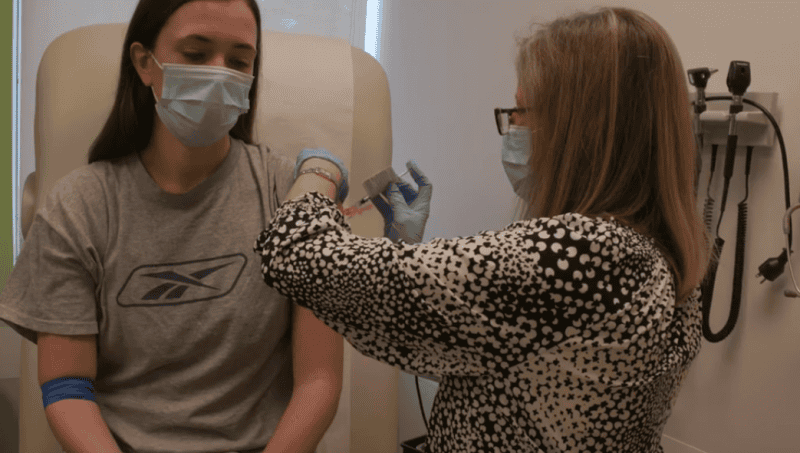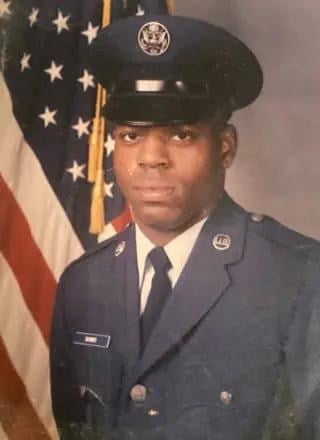

In mid-March, Claire MacDougall, who starred at Moorestown High School in lacrosse and soccer, was doing what everyone else was: watching the country improbably shut down within the span of a few days on live TV.
NBA season, suspended. NCAA conference tournaments, cancelled. Public and private schools, shut down.
MacDougall’s fiance, Joe Behnke, who is studying at Emory University’s medical science training program, was contacted by the university to see if he’d want to voluntarily be given an experimental vaccine for COVID-19. A few years earlier, Behnke had participated in a similar clinical trial for an Ebola vaccine.
“They used that database for the next big clinical trial and they called him first,” said MacDougall, who lives in suburban Atlanta. “I was sitting right next to him and he was like, ‘Yeah I’ll do it.’ And I was listening and I just tapped him on the shoulder and said, ‘Put my name in there, too.’”
Less than a week later, MacDougall was making history: She was the first person on the East Coast to get the shot, with a camera crew to document it. The Moorestown native was back at Emory on Thursday to receive her second shot in what could be a 14 month-long process.
MacDougall is one of 45 people participating in the study, run by Emory and Kaiser Permanente Washington Health Research Institute in Seattle.
“In the back of my mind I was like, this is affecting everyone,” MacDougall said. “They had just shut down the NBA and the NHL. So it was crazy and I knew it wasn’t going away soon. It’s affecting every single person in the world. And I’m just sitting at home doing my job, that has nothing to do with this. So I might as well do my part for society.”
Ten years ago, MacDougall was a member of one of New Jersey’s most dominant dynasties as a defender on a Moorestown lacrosse team that won three straight state and Tournament of Champion titles and was sporting a decade-long unbeaten streak against in-state foes. Now she’s going on the offensive against the COVID-19 pandemic.
“Claire was always the type of person that would put others first: That is what made her so unique,” said Moorestown girls soccer and softball coach Bill Mulvihill, who had MacDougall for four fall soccer seasons.
“She was never about herself but for the good of the team,” he continued. “I see that in this situation as well. She had an opportunity to help not just a few people, but the existence of everyone, and she didn’t hesitate to try and help. That, to me, is an awesome person and a true hero.”

MacDougall is not being injected with COVID-19 and the vaccine cannot cause an infection. The vaccine, MacDougall said, is made up of a copy of COVID-19’s genetic code.
“And it’s supposed to create a protein that would fight off the virus,” she explained “So if you were to get the virus, your body would be prepared, because it’s seen this code before. So hopefully they’d be able to identify it and fight it off with the vaccine.”
MacDougall was a little bit nervous heading into the lab, but Behnke’s experience at Emery during the Ebola clinical trial helped put her mind to ease. An employee at TaxPro Alliance, a tax software company, MacDougall put her trust in her fiance, who will have both a M.D. and Ph.D when his program at Emory is finished in the next two years.
MacDougall and Behnke met at Rutgers University, where she played Division-I lacrosse and where he walked on to make the special teams unit on the football team. The couple got engaged two days before Christmas.
They were supposed to get married last Thursday.
“We’re pretty low-profile people; we were actually just going to go to the courthouse,” MacDougall said, adding that both sets of parents and siblings did have to cancel flights. “Maybe we’ll have a party later in the year. We were lucky in that we didn’t have to cancel anything.”
MacDougall has plenty of time to schedule a makeup trip to the courthouse. Until then, she’ll continue to play her vital role in taking on COVID-19.
“This is my time to help society,” she said. “I’m not a nurse, I’m not a health care worker, I can’t change that. So this is you doing your part.
“This may be the only way to make this go away, with a vaccine … This is how science works. This is how vaccines work. You have to do clinical trials.”








